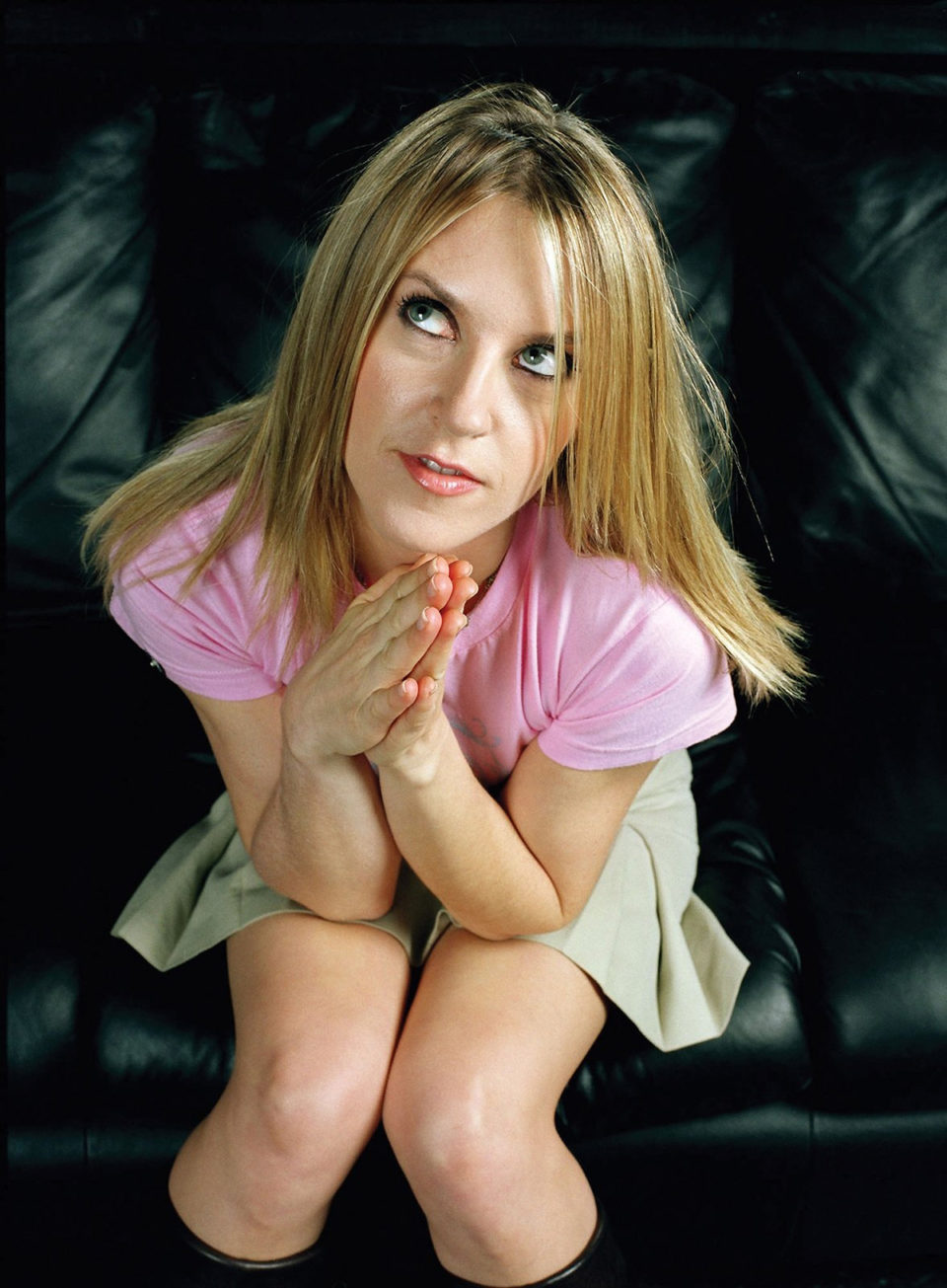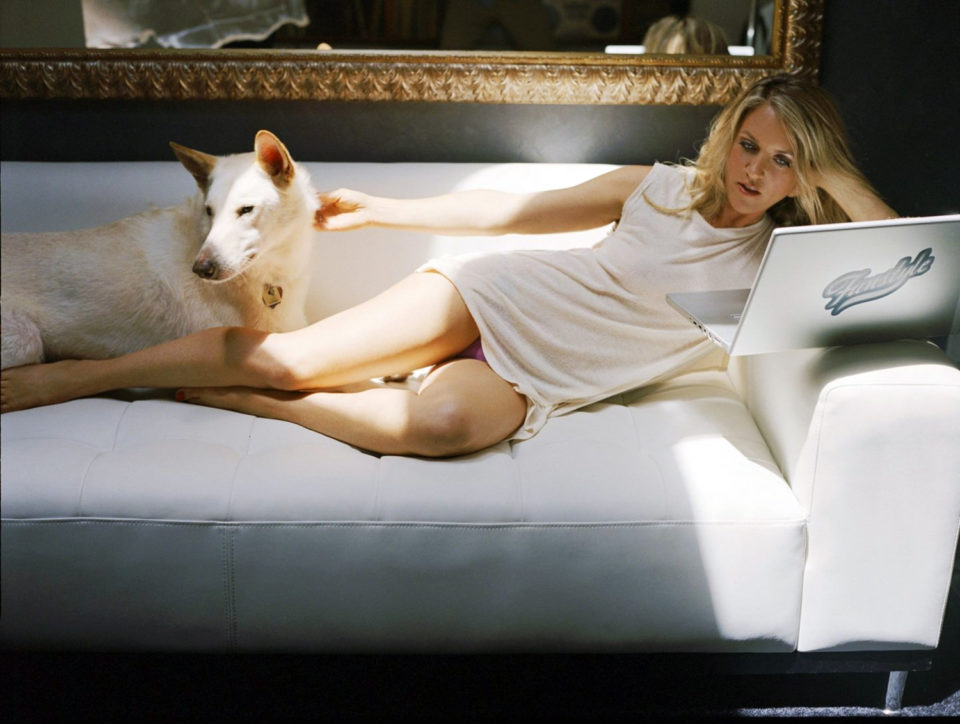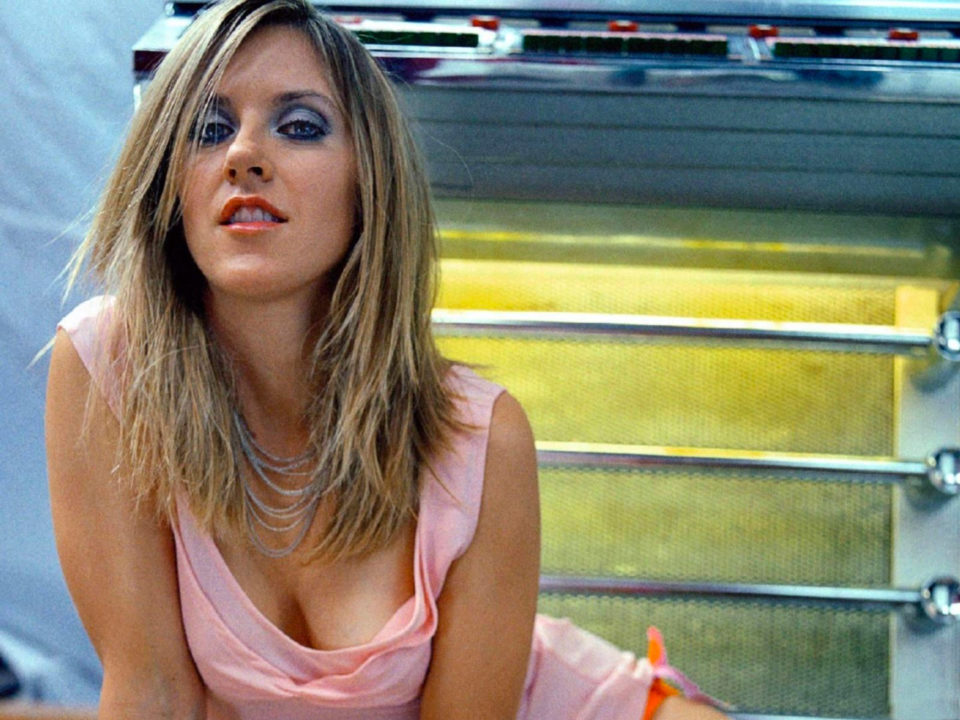By Annie Zaleski
Las Vegas Sun, September 30, 2010
Looking back as an artist, what stands out to you about being on Matador?
I had a lot of fun on Matador. They have a great spirit. They don’t take pop culture too seriously, even as they take music seriously. They’re willing to sort of fuck with people in the media, and they take it as their right—maybe even their responsibility (laughs)—to call ridiculous the things that are ridiculous about selling art. And yet at the same time, they’re very interested in selling art and being successful at it, and I was, too. We complemented each other that way. They let me be me, which was really nice.
You read so many stories about, “Oh, I signed to a label and then they wanted me to immediately start changing things.” It was like, “Wait a second!”
Oh my God, they all wanted me to do that. Every label I’ve been on since has wanted me to do that. Matador is unique in that respect; they just let me be me. And I wasn’t even really what they were all about, necessarily. And I respect that.
I talked to another artist who said, “You know, they sign what they want to sign, even if they’re not going to make boatloads of money. They’re like, “No, this artist is really good, we believe in him.” That doesn’t happen anymore.
No, and it’s been the same way the whole time. They’ve managed to hold on to their business model, in and amongst all these different, other ways they had to function. You can go to a Matador catalog and pick anything, and know that you’re going to get something that you probably will like and can expect, to some extent, to find Gerard [Cosloy] and Chris [Lombardi’s] tastes in there at the same time.
What sort of impact do you think Matador has had on music overall?
Being one of the most long-lasting and well-respected indie labels. [That they’ve] continued to put out excellent music and survive multiple climate changes in [the] business—and multiple incarnations as an independent entity—makes them really unique. I can’t think of any other label right now that has enjoyed the kind of success they’ve had, for as long as they’ve had, without derailing. Like the digital revolution or, earlier than that, getting swept up into the major system, when there was an unspoken war on indies, where everybody brought the minor labels into the major-label system, hoping to clean that problem up (laughs). They’ve survived all of that—and they’re flourishing. So they deserve a big, fat party.
Do you think it’s strange to have the anniversary party in Vegas instead of New York?
No, I guess Vegas is a party town. It’s a convention town. New York is so hard to get around, putting people up with bedbugs and whatnot. It makes sense—you wanna gather a lot of people together, and Vegas really does that well. New York can, but you know the hassles. I’ve lived there. It’s an entirely different beast. This allows Gerard and Chris and the Matador staff to also have a holiday, ’cause they’re not just slogging it out with everyone else. They get to be part of the party too.
How do you think Guyville helped Matador evolve as a label?
Well, from what they’ve told me, it was one of their first big successes, and there was a certain amount of star-making stuff that wasn’t really part of their wheelhouse in the beginning. They dealt mostly with bands, and then I came along and had sort of a celebrity profile, for having done this thing, as a woman in a man’s world. And my videos brought me to a different kind of level of public awareness as a person. It wasn’t just about my music, it was about what I represented at the time. I think that helped them expand into areas—well, Cat Power did that, too, for them; she had a real early star appeal that same way. She had sort of a mythology about her, a mystique.
Matador gets associated so much with scruffy dudes, but they’ve always had a diverse roster. It’s tough to find a label that, if it has a female artist, will say, “We like their unique, individual imprint,” and run with it. That takes smarts and confidence to let a confident woman do that.
And respect for women. Couched in all those, “Oh, you should wear this” and “You should try to imitate her,” there’s an objectification that’s really insulting. Matador never did that. Even if they weren’t digging what I was up to, they never did that. I’ll put it this way: They always saw me as an artist first, no matter what I said, did, ran about, wore or pursued, they always saw my music and my artistry first and foremost, and never really doubted that, you know, that was what was important about me. So many labels will take a woman, and if she has sex appeal, be like, “Let’s do that—and yes, get some music for us, and then do that!” It’s much lower IQ (laughs).
Do you miss being on Matador?
Sometimes I do. I’m pretty happy with the label I’m on right now [My Rocket Science], because I get to do what I want as well. But I sure miss having those guys around and having them to talk to and laugh with, because they’re awesome.
Do you have a favorite Matador album?
I have a few. At the time, Slanted and Enchanted was huge for me. Right as I was making my record, I was always listening to that pretty nonstop.
Are you looking forward to seeing Pavement next weekend?
Hell yes!
Are you a fan at all of any of the newer Matador bands?
I don’t know if I know any of them. I’ve lost touch with a lot of that boutique-type music just because of my age, and raising my son and the multiple jobs I have at this point. I’m just out of touch with new music in general, and I only know about it if I’m hanging out with someone that knows about it, or I catch it on YouTube. I don’t have the same access or time to gain access to music the way I used to. Sadly, I’m like one of those old farts out of the loop. But it’s been fun doing press for them and trolling through their catalog and seeing who’s doing what and taking little quick listens.
Do you know yet what you’re going to play at the festival? Are you just going to do Guyville? Are you going to stick to Matador stuff?
I was just talking to the guitar player, and we were both agreeing that we’ll probably stick to Guyville stuff. We’re only playing, like, four songs, so I would think most people are going to want to hear Guyville stuff. It seems like it’s more appropriate. Maybe “Supernova” or I’ll try some random song that’s rare like “Jeremy Engle” or something. I think I’m going to have a lot more of an idea after I see a bunch of shows [and see] what people are doing and what would be appropriate.
Whatever you do play, someone will complain …
That’s for sure. I left that behind years ago. It’s like, I drag along like a comet trail of angry… (laughs) angry critics with me everywhere I go. I’m like, “Oh, don’t mind that—that’s my dirty comet trail of angry critics!”
It’s unreal just how much vitriol you seem to draw. I’ve never been able to figure it out.
What the hell is up with that? Do you put records out and people freak out with anger and rage? Like, who does that? Honestly, I thought I had a handle on it for a while, in terms of why, and then I lost that handle. Maybe I put a lot out there. I’m always trying something new. And that gives them the opportunity, plus … I don’t think I try to fit into the box. I think I’m always trying to do something totally different with the box. Who knows? I don’t know. Most of the ideas about me are misconceptions, so I just let it go.
With [new album] Funstyle, do you think people read into it too much?
Oh my God, yeah (laughs). First of all, half of them didn’t even get it. Like, they literally didn’t get it. And I had this moment of terror where I feel like I’m looking at people’s IQs, going, Wow, really? Really? People didn’t get it. Like, they actually thought I was going to try to rap now. It was very amusing to me. It got better pretty quickly, and I don’t mind the negative reviews as long as they get it. It’s fine with me, as long as they are hearing what they’re supposed to be hearing. Some of the stuff that’s just so whacked-out and clueless really upset me. You can hate me, as long as you get what I’m doing. Because if you don’t even understand what I’m doing, what are you doing writing about it?
Why release a disc of Girlysound demos with the new record?
Matt Larsen from My Rocket Science was working the project early on, and he picked up on a bunch of blog entries where people were like, “What is this stuff? Where did it come from?” They’re like, “Well, if you knew Girlysound, you’d know where it came from. She did voices back then, she mashed up genres, she rewrote traditional songs, she was poking around with lo-fi production back then.” And I thought that was extremely astute of people to pick up on. So we just decided to make it easy and put it out there with them, so you could really see where this comes from. The two records complement each other very well—they have a common spirit, a common sense of freedom musically. The earlier work is pre-Guyville, for one thing, and it shows that I was writing songs competently back then, but wasn’t experimental with it. And I feel like my new work shows that I write songs competently and I’m experimental with it, and just have access to more production, and I’m experimental with that.
Featured Image: Liz Phair in 2003 (Photo: Jim Cooper/AP)








